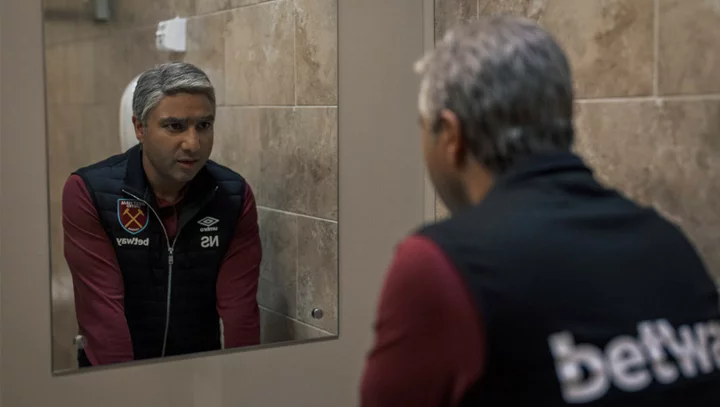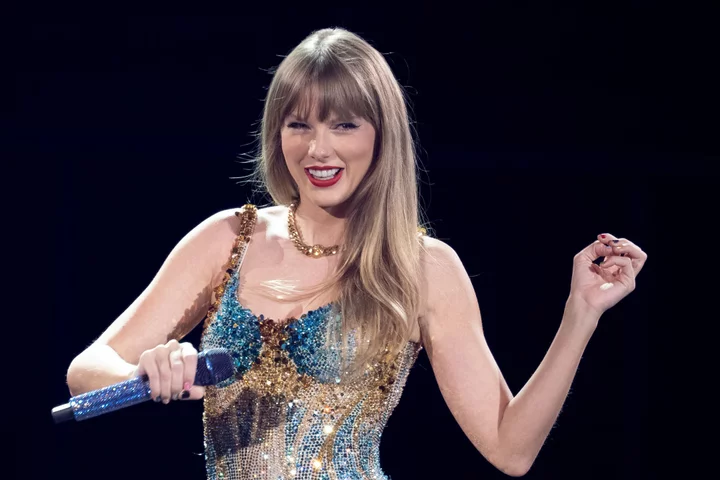When Coach Nate (Nick Mohammed) turned to the dark side in Ted Lasso's Season 2 finale, I pulled a quote from the Book of Lasso and thought, "smells like potential." After all, Nate's heel turn teased both the potential of a great TV villain and a chance at a killer redemption arc, and Ted Lasso appeared equipped to deliver us both.
Across Seasons 1 and 2, Ted Lasso introduced smarmy villains like Rupert (Anthony Head), and reformed the antagonistic Jamie Tartt (Phil Dunster) from self-centered attention hog to empathetic teammate. Unfortunately, my belief that the show could transfer that magic to Nate's storyline was proven wrong as Season 3 progressed.
As I wrote in my Ted Lasso Season 3 review, Nate's arc this season was poised to be one of the show's most fascinating. With Rupert and Nate, it felt like Ted Lasso was setting up a dark overlord/conflicted henchman-type relationship — think the Emperor and Darth Vader in Star Wars. With this in mind — as well as iconic TV redemption arcs like Zuko's from Avatar: The Last Airbender — I couldn't wait to watch Nate antagonize his former team, realize the error of his ways, and stand up to Rupert.
SEE ALSO: 'Ted Lasso': 5 burning questions we have for the series finaleWe certainly get some of that antagonism in the season's early episodes, which see Nate trash talking Ted (Jason Sudeikis) and Richmond. At a match between West Ham and Richmond, Nate also gives Ted the cold shoulder. Still, we see glimmers of hope: Nate tries to apologize to Ted when they're in an elevator together. He tries to shake Ted's hand after forgetting to do so post-match. He even begins to realize Rupert isn't all he seems when he learns of his extramarital affairs.
But from there, the narrative mistakes begin to pile up. First, sequestering Nate from the rest of the Greyhounds makes him feel disconnected from the show's main storyline — a grave error when you're talking about one of your main antagonists. Mohammed does solid work showing Nate's inner turmoil, but at a certain point, Ted Lasso stops focusing on that turmoil and shifts gears to giving him a relationship with Jade (Edyta Budnik), whose lack of personality only heightens the paper-thinness of this plotline.
What actually happened with Nate in Season 3?
Nate's arc takes a turn for the absolutely confounding in Season 3, episode 10, "International Break," when we learn from a news report that he is no longer the manager for West Ham. While general belief seems to be that Rupert fired him, it turns out that Nate quit. And we didn't get to see it.
Frustrating doesn't even scrape the surface of how Ted Lasso treats Nate's resignation. After building up the growing tensions between Nate and Rupert for 10 episodes, the show robs us of seeing the break in that relationship. Did Nate stand up for himself, or was his quitting more subdued? How did Rupert react in the moment? All that opportunity for character development, and Ted Lasso treats it like it could have been an e-mail.
And would you believe that it gets worse?
Nick Mohammed in "Ted Lasso." Credit: Apple TV+In episode 11, "Mom City," AFC Richmond players visit Nate at his new job at the restaurant Taste of Athens, telling him they want him back. They've discussed his return as a team and decided that he deserves a second chance. And while I'm sure that discussion was an intense moment for the Greyhounds, full of debates about forgiveness and redemption, I wouldn't know how it played out. Because once again, we don't get to see it.
Not showing the fallout between Nate and Rupert is one thing, because at least we get to see some of their reactions. (Honestly, it's still not enough.) But leaving out such a key pivot when it comes to the Richmond players' opinions of Nate is a huge misstep. Just episodes ago, when they discovered it was Nate who ripped up the "Believe" sign, they wanted to kill him. They walked on that pitch with murder in their eyes and played the most violently they've ever played. And now they're just... cool with him?
You could argue that the Greyhounds have become more forgiving people since then, but that's not enough of a justification for such a shift in opinion — especially when Richmond has been playing exceptionally well without Nate. They're mere points away from winning the Premier League title, and they decide that now is the time to bring in someone they wanted to absolutely destroy? I'm not buying it. Not unless you show me the journey.
Nate's arc speaks to one of the biggest problems Ted Lasso has been running into this season: pushing significant events off-screen. The show blindsided us with Zava's (Maximilian Osinski) decision to retire, as well as venture capitalists pulling funding from Keeley's (Juno Temple) PR film, all of which we learn about secondhand. Ted Lasso's speed run of these key plot points is a disappointingly hand-wave-y approach to storytelling, and the mishandling of Nate's story is by far the most egregious example. You're telling me we can spend an entire episode watching the Greyhounds debate what to do for a night out in Amsterdam, but we can't get one quick scene of them talking about forgiving Nate? I will gladly forgo a million jokes about Dutch sex shows and tulips in order to get one ounce of that team discussion we missed out on.
To Ted Lasso's credit, a later scene in "Mom City," in which Coach Beard (Brendan Hunt) tells Nate about why he's willing to give him a second chance, is a genuinely effective take on how someone at Richmond can find it in themselves to forgive Nate. But after all the skipping around, the scene feels like too little, too late.
Unless Ted Lasso's series finale devotes some serious time to Nate and Ted's reconciliation, I'm afraid all that potential of a moving redemption arc will have gone to waste.









